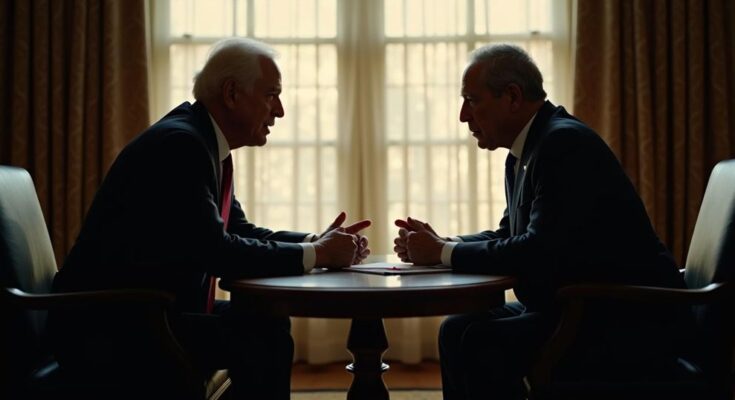The conflict between Israel and Hezbollah has escalated significantly following Israel’s assassination of Hezbollah leader Hassan Nasrallah, resulting in heightened military actions, substantial casualties, and international concern over Lebanon’s sovereignty and regional stability. U.S. President Biden is expected to engage with Israeli Prime Minister Netanyahu to discuss the situation amidst calls for a ceasefire from various regional powers.
Tensions in Lebanon have escalated following the targeted assassination of Hezbollah leader Hassan Nasrallah by Israeli forces, which has resulted in a substantial military response from both sides. Israel has intensified its aerial bombardment of Lebanon, marking the death of several high-ranking Hezbollah members alongside Nasrallah, while Hezbollah has retaliated by launching missiles into northern Israel. Israel’s military actions have led to significant casualties and displacement, with over 100 people reported dead and hundreds of thousands seeking refuge due to the conflict. Simultaneously, oil prices reacted to the situation, with minor fluctuations indicating market sensitivity to geopolitical developments in the region. In a broader diplomatic context, Egypt and Saudi Arabia have voiced their concerns regarding Lebanese sovereignty amidst the ongoing hostilities, while the Gulf Cooperation Council has called for an immediate ceasefire. Notably, U.S. President Joe Biden is scheduled to discuss the situation with Israeli Prime Minister Benjamin Netanyahu, emphasizing the need to prevent an all-out war following the recent violence.
Recent developments in the Middle East have brought Lebanon into the spotlight as Israeli airstrikes and Hezbollah retaliatory rocket fire create a volatile security environment. The assassination of Hassan Nasrallah, a key figure in Hezbollah, has led to a significant increase in hostilities and casualties, raising international concerns over potential escalation of the conflict into a wider regional war. Global oil markets, significantly influenced by tensions in the region, have shown fluctuations during this period, underscoring the economic implications of such geopolitical crises. The responses from regional powers, particularly Egypt and Saudi Arabia, along with international diplomatic efforts, reflect a collective concern for stability and peace in the Middle East.
The situation in Lebanon remains precarious as military actions intensify between Israel and Hezbollah, leading to severe humanitarian impacts and international diplomatic interventions. With rising casualties and fears of broader conflict, the need for a ceasefire and resolution is paramount. The involvement of global leaders, particularly President Biden’s upcoming discussions with Prime Minister Netanyahu, indicates the international community’s engagement in efforts to stabilize the region and prevent an all-out war.
Original Source: www.hindustantimes.com




